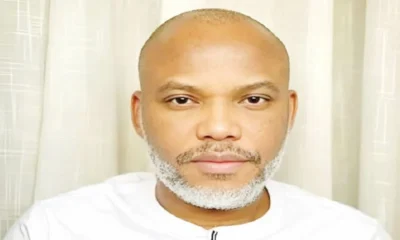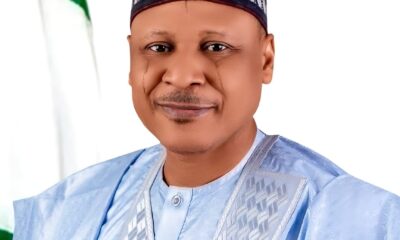Watch tthe video below:
Religion
CHRISTOCENTRIC MEAL: DR ABEL DAMINA
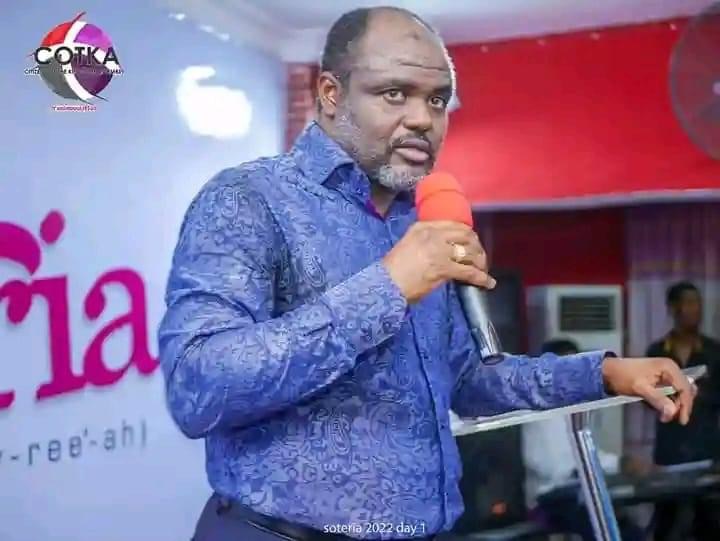
*SUNDAY APRIL 07, 2024*
*BAPTISM WITH THE SPIRIT (2)*
Acts 8:15 Who, when they were come down, prayed for them, that they might receive the Holy Ghost:
Vs 16 (For as yet he was fallen upon none of them: only they were baptized in the name of the Lord Jesus.)
Vs 17 Then laid they their hands on them, and they received the Holy Ghost.
After preaching the gospel in Samaria, Philip called on the Apostles to come and pray for them that they might receive the Holy Ghost (verse 15), as he was fallen on none of them, only were they baptized in the name of the Lord (verse 16).
Then in verse 17, they (the Apostles) laid hands on them and they received the Holy Ghost. What did the receiving of the Holy Ghost here mean?
Recall that these men had believed the gospel, and therefore born again, i.e. born of the spirit. Thus it will not be in reference to the indwelling of the spirit (which was already a reality).
Peter’s response to the request of Simon, the sorcerer helps our understanding.
Acts 8:20 But Peter said unto him, Thy money perish with thee, because thou hast thought that the gift of God may be purchased with money.
Vs 21 Thou hast neither part nor lot in this matter: for thy heart is not right in the sight of God.
The word “matter” used by Peter in verse 21 is one that has to do with speaking or utterance. Hence, what Simon must have seen was that by the laying on of the hands of the Apostles, there was supernatural speaking (which explains receiving the Holy Ghost or the Holy Ghost coming upon them).
Another account in the book of Acts with Paul at Ephesus buttresses this fact.
Acts 19:2 He said unto them, Have ye received the Holy Ghost since ye believed? And they said unto him, We have not so much as heard whether there be any Holy Ghost.
Vs 3 And he said unto them, Unto what then were ye baptized? And they said, Unto John’s baptism.
Vs 4 Then said Paul, John verily baptized with the baptism of repentance, saying unto the people, that they should believe on him which should come after him, that is, on Christ Jesus.
Vs 5 When they heard this,they were baptized in the name of the Lord Jesus.
Vs 6 And Paul had laid his hands upon them, the Holy Ghost came on them; and they spake with tongues, and prophesied.
These men had been baptized with water, but Paul’s query above indicated that they were not yet saved. Hence Paul pointed them to how that John baptized with the baptism of repentance saying that they should believe on him who should come after him that is on Christ Jesus.
Now upon this, they believed (that is, were baptized in the name of Jesus in verse 5, which could not have been referring to water as they had already been baptized with water, being John’s disciples).
In verse 6, Paul then laid his hands on them, and the Holy Ghost came on them, and they spoke with tongues and prophesied.
Thus the term “the Holy Ghost came on them” was used to refer to the fact that they spoke with tongues and prophesied.
Peter also employed the use of similar words when narrating what happened in the the house of Cornelius:
Acts 11:15 And as I began to speak, the Holy Ghost fell on them, as on us at the beginning.
Vs 16 Then remembered I the word of the Lord, how that he said, John indeed baptized with water; but ye shall be baptized with the Holy Ghost.
Vs 17 Forasmuch then as God gave them the like gift as he did unto us, who believed on the Lord Jesus Christ; what was I, that I could withstand God?
Let us observe some of the facts here:
He explained that as he spoke, the Holy Ghost “fell on them as on us at the beginning”. Thus pointing to a similarity of this with what happened in Acts 2.
In verse 16, he related this to the baptism with the Holy Ghost which Jesus had spoken of in Acts 1:5. He explained that God gave these folks the like (the same) gift as he did unto them.
Therefore we can see that the baptism with the Holy Ghost, receiving the Holy Ghost and “the Holy Ghost coming upon” were used to relate to utterances, that is, tongues and prophecy.
Hence the use of these terminologies were not to refer to the indwelling of the spirit, as this will imply (in the case of those at Samaria) that a man can be born again and yet not have the spirit in him, but we have since established that the new birth is to be born of the spirit. Such a man has the spirit, rather, these terms (“baptized with the Holy Ghost”, “receiving the Holy Ghost” and “the Holy Ghost coming upon”) point to an activity so described – supernatural utterances, in other words, tongues and prophecy.
Confession: “I am born of the spirit, the spirit of God lives in me. Based on this I can yield myself to function via supernatural utterances: to speak with tongues and to prophesy!”
Religion
Gospel Legend Ron Kenoly Is Dead
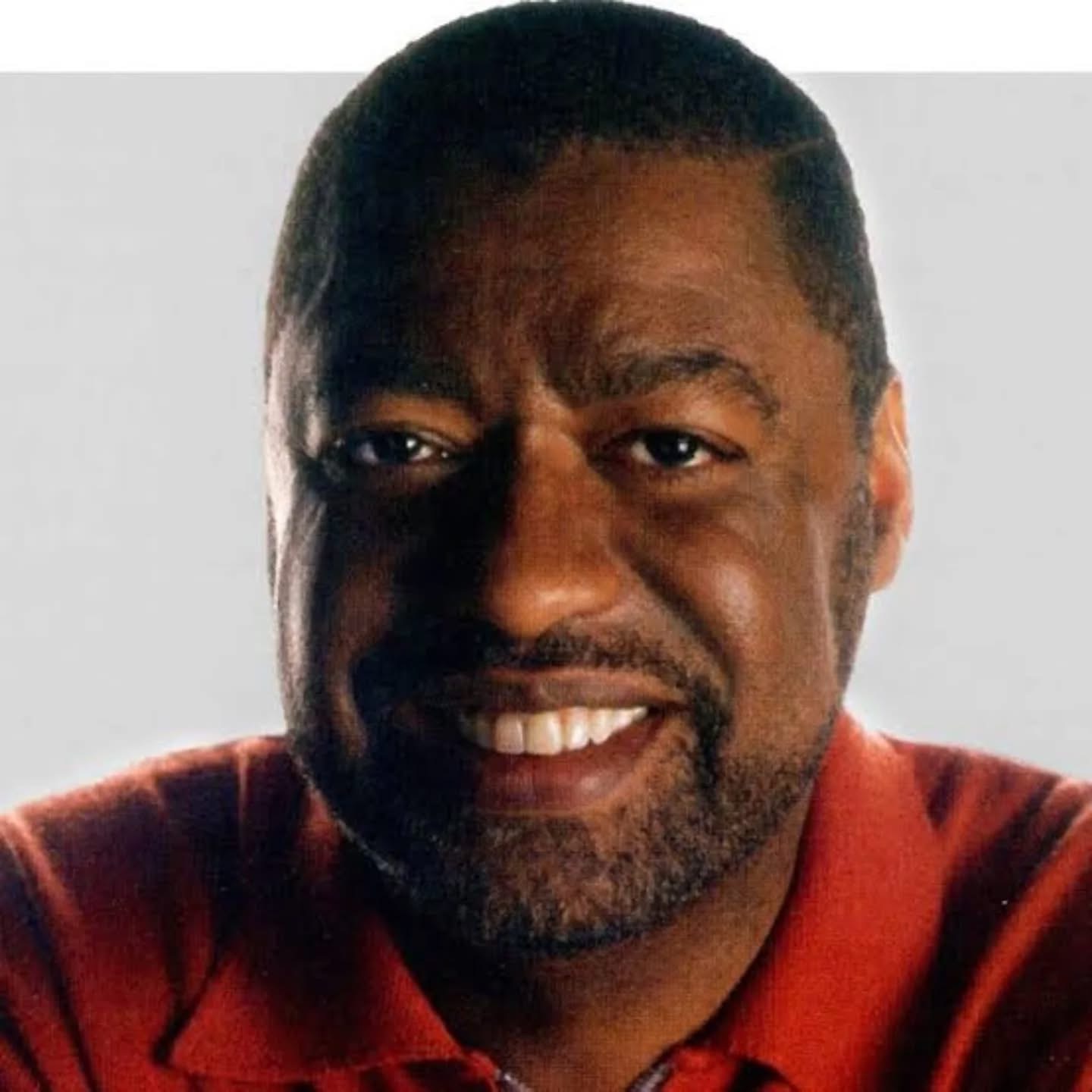
Legendary gospel singer Ron Kenoly has passed away.
His death was confirmed on Monday, February 3, 2026, with tributes pouring in from gospel artistes across the world. He was 81 years old.
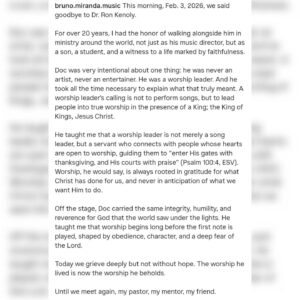
Religion
“Based On Medical Facts, I Don’t Believe This Is A Miracle” – Medical Doctor Reacts To Pastor Chris Oyakhilome’s Miracle Video (Watch)
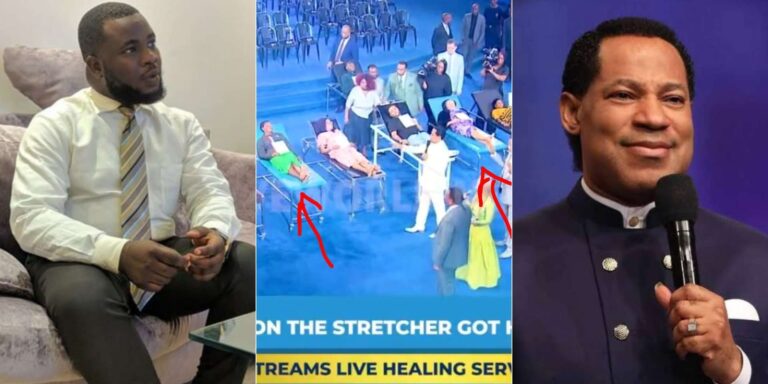
A Nigerian medical doctor, Dr Sina, has publicly reacted to a viral miracle video involving Pastor Chris Oyakhilome, stating that based on medical facts, he does not believe the incident qualifies as a miracle.
A video of Pastor Chris Oyakhilome healing some people who were reportedly unable to walk had initially made the rounds, stirring different reactions.

In a detailed breakdown shared online, the doctor explained that he carefully reviewed the video, slowing it down and examining the movements of the individuals described as crippled.
According to him, several physical and neurological signs expected in paralyzed or long-term crippled individuals were absent.
Dr Sina noted that medically, a non-functional or paralyzed leg often presents with abnormal angles, rotations, or muscle wasting due to disuse. However, he claimed these features were not evident in the video.
He also pointed out instances where some individuals appeared to move their legs freely, including crossing them, which he said would be impossible for someone who is paralyzed.
He further argued that even in a scenario where healing occurred instantly, the brain would still need time to relearn movement, balance, and coordination. In his view, the immediate and spontaneous jumping seen in the video did not align with how neurological recovery typically works.
While emphasizing that he believes in miracles as a Christian, Dr Sina maintained that, from a medical standpoint, the video did not provide sufficient evidence to conclude that a genuine miracle had taken place.
He encouraged viewers to slow down the footage themselves and consult medical professionals for further evaluation.
His words …
“I took a look at this Pastor Chris’ video and as a medic I slowed it down and examined critically.
I zoomed into the legs of the so called ” crippled” and here is what I’d say
1 If truly one is crippled , As Medics we know that the particular leg that’s crippled or non functional will assume an angle or rotation , None of the “crippled” had that angle which means most of them had fully functioning leg muscles.
2 If you look well there is a particular woman there that crossed her legs. If you are crippled aka paralyzed you can’t summon muscle power to bring your legs to make that angle
3 I tried to zoom even though I wasnt able to see clearly , usually when one has been crippled for a while there is tendency for the muscle to be asymmetric due to disuse, (except they’ve been having physio) took a look at all of them well, even though difficult i didn’t see physical signs of being crippled.
4 Even if we assume they were crippled for a while. If they miraculously got new nerves and muscles cells.
Jumping off the bed, the brain and other organs will still have to remaster movement. Balance and a little stagger.
The jump was spontaneous and not looking like a need for remastering.
Were they really crippled from the beginning ?
5 Slow the video and zoom zoom and check the occasional movement of the lower limb muscles of some of them ( show your doctor friends) that shows signs of intact nerve and muscle control
So are they really crippled?
PS- crippled will mean paralyzed or Paraplegic ( medical word)
Do miracles exist? As a Christian yes.
But is this a miracle? Looking at medical facts evidenced i don’t believe it is a miracle denovo.
You can fact check yourself”
Check out his post …



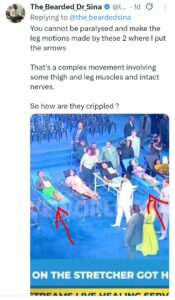
Religion
Liars don’t last in ministry – Oyedepo warns pastors
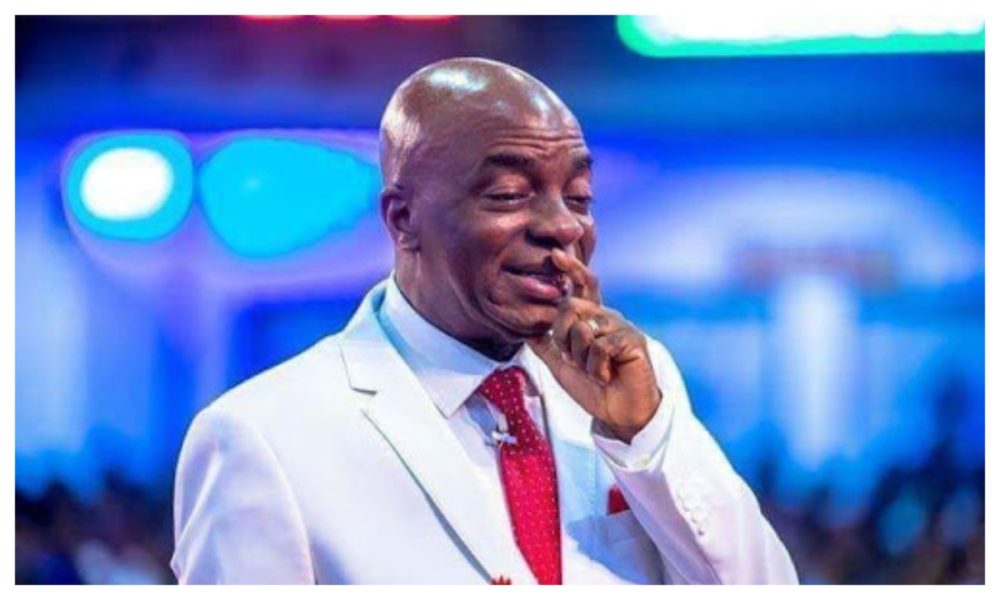
The Presiding Bishop of the Living Faith Church Worldwide, also known as Winners Chapel, Bishop David Oyedepo, has warned pastors against lying in a bid to sustain or promote their ministries.
Speaking at the third service held at the church’s international headquarters, Canaanland, Ota, Ogun State, on Sunday during the final day of the 21-day fasting and prayer programme, Oyedepo said liars do not last in ministries.
“You won’t last in the ministry telling lies. I stand before God, I will never tell lies about what God did not do just to impress anyone,” he said.
The cleric emphasised the importance of holding firmly to the truth of the Scriptures and giving glory to God alone, noting that such commitment is what enables ministers to attain enviable heights.
He equally advised believers to keep their love for Jesus alive, saying total dependence on God guarantees victory over life’s challenges.
The bishop further shared a personal testimony, recalling how a close associate in Ile-Ife who was afflicted with insanity was restored after Scripture was read to him.
He affirmed his confidence in divine protection, declaring that no evil plan against him would succeed.
-
Business1 year ago
US court acquits Air Peace boss, slams Mayfield $4000 fine
-

 Trending1 year ago
Trending1 year agoNYA demands release of ‘abducted’ Imo chairman, preaches good governance
-

 Politics1 year ago
Politics1 year agoMexico’s new president causes concern just weeks before the US elections
-

 Politics1 year ago
Politics1 year agoPutin invites 20 world leaders
-

 Politics1 year ago
Politics1 year agoRussia bans imports of agro-products from Kazakhstan after refusal to join BRICS
-
Entertainment1 year ago
Bobrisky falls ill in police custody, rushed to hospital
-
Entertainment1 year ago
Bobrisky transferred from Immigration to FCID, spends night behind bars
-
Education1 year ago
GOVERNOR FUBARA APPOINTS COUNCIL MEMBERS FOR KEN SARO-WIWA POLYTECHNIC BORI









